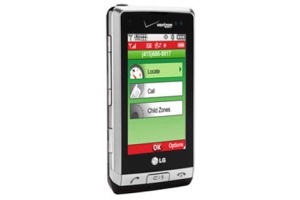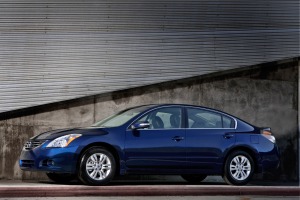
For many parents, handing over the car keys to an inexperienced teenage driver is a modern-day rite of passage akin to the ancient practice of sending a kid out into the wilderness to face a whole new world of dangers for the first time. When a teen drives out of sight, parents can only wait, wonder and worry until they return home.
But thanks to technology, moms and dads can now electronically ride shotgun with their teens by tracking their whereabouts in real-time, monitoring their behind-the-wheel behavior with a video camera, recording whether they're driving too fast or in a forbidden area and even limiting how loud they can crank the stereo.
While we'll leave the issue over whether such intense scrutiny enhances or erodes parent-child trust to Dr. Phil, a study by the Insurance Institute for Highway Safety released in May of 2009 shows that such electronic leashes make a significant difference in causing teens to drive safer.
So if some type of spy gadget will help you rest easier when your teen is on the road, here's a sampling of the technology available, what it offers and how much it costs.
Have Phone, Will Travel...and Track
These days, most teens wouldn't dream of leaving home without a cell phone, so tracking their whereabouts using the ever-present device makes sense — and a few extra dollars for wireless carriers. Thanks to GPS receivers built into most mobile phones, services like Sprint's Family Locator and Verizon's Chaperone allow parents to keep tabs on their teens in real-time on the Internet via satellite mapping. Parents can not only use the services to pinpoint the location of their progeny at any time, but also set up a "safety zone" and send notifications when a kid leaves it.
If Sprint or Verizon isn't your wireless carrier, AccuTracking offers a similar service that can be added to an existing phone, with rates starting at less than $20 a month. Or you can give your teen a Guardian Angel mobile phone for as low as $80 that allows GPS tracking bundled with a $30 monthly subscription.
The upside of cell-phone tracking is there's no hardware to install in a vehicle, you can track your teen even when they're not on four wheels, and the Sprint and Verizon services can be added for less than $10 a month. The downside is that if a kid turns off the phone or loses it, the system is useless.
Follow That Car
If you want a monitoring service that's virtually kid-proof — and don't want a teen to know they're being tracked — there's no shortage of spy gadgets available in a variety of price ranges and with features that would make James Bond blush.
At the low end of the cost and hassle spectrum is the CarChip Pro, a $199 data logger that's about the size of a deck of cards and plugs into a vehicle's OBD II port. In addition to recording the date and time a car is driven, it also allows setting thresholds for speed, acceleration and braking, and you can download reports that show the time, duration and frequency at which the parameters were exceeded.
But CarChip Pro doesn't show you where your kid is. For real-time tracking, you'll need a GPS-enabled device installed — and dole out money for a monthly service fee. Youth Driving Safe sounds like a nonprofit organization, and the company's Web site offers plenty of sobering statistics on the dangers of teen driving as well as tips for parents to prevent their kids from becoming one. But the company sells GPS devices that provide real-time tracking, "geo-fencing" for setting up no-drive zones, vehicle speed monitoring and more, with prices that range from $300-$350 with a monthly service fee of $19.
Extra Insurance
Safeco Insurance offers its own version of teen tracking, along with up to a 15 percent discount for policyholders. The company's Teensurance includes a safety beacon GPS device that comes with prepaid installation and provides online tracking, the ability to set up e-mail and mobile phone alerts when a speed limit or curfew is broken, stolen-vehicle tracking and 24/7 roadside assistance. Teensurance costs $199 with a $19.99-a-month service fee and requires a two-year contract.
By partnering with DriveCam, American Family Insurance is also using technology to make parents of driving teens less stressed. By opting into the Teen Safe Driver Program, they get a camera installed in the car that records "risky driving behavior" such as swerving, hard braking, sudden acceleration and collisions. Footage is wirelessly sent to DriveCam, where a trained analyst reviews it and assigns the driver a risk score, which is sent in a report to parents via e-mail.
Parents can't view the footage or watch their teens, and American Family claims it doesn't use it as evidence — or even have access to it — to determine rates. The company says it provides the service for free to parents as a tool to school teen drivers, and it doesn't offer a discount on premiums for being a part of the program. But considering that an equivalent DriveCam system costs $899 with a $75 monthly service fee, signing on for the Teen Safe Driver Program could be considered a bargain.
No Installation, No Fee
If you're looking for tracking tech that's simple and stealthy, the Spark Nano GPS tracker doesn't need to be installed and can be hidden among papers in the glovebox or in some other discreet location. It sends out a signal that allows it to be tracked online and also offers such features as speed monitoring and e-mail or text-message alerts if a vehicle leaves a predefined area. The Nano has a rechargeable battery that's good for five days' worth of snooping and costs $299.95 with a $39.95-a-year service charge.
MobileTEEN GPS is designed to keep tabs on your teen like most other services mentioned here, but with one big exception: There's no service fee. It sells on the Internet for $299 and the company says it can be self-installed. Once onboard it can track a car online and is set up to send alerts via e-mail or text message if the car leaves a designated area. The company also claims that if a teen figures out how to disarm the device, it has a backup battery that can last for up to eight hours, and mom and dad can get an alert saying that the kid has pulled the plug.
Your Car, MyKey
If you don't want to track your teen but would like to set limits on their behavior behind the wheel, there's tech for that, too. Ford's MyKey comes standard on the 2010 Focus and will soon migrate to other Ford, Lincoln and Mercury models. It allows parents to program any of a car's keys so that when it's inserted into the ignition an embedded transponder chip imposes certain limits.
Parents can set the car's top speed at 80 mph and speed-alert chimes to sound at 45, 55 and 65 mph, as well as limit the overall volume of the audio system to 44 percent of maximum. They can also program MyKey to have the seatbelt reminder chime incessantly and the audio system to mute until the driver's safety belt is buckled, as well as not allow safety features such as blind-spot monitoring and traction control to be turned off.
So while handing over the keys to a kid can be nerve-racking for parents, with today's technology, even when teen drivers are out of your sight doesn't mean that you're out of their minds. And that you don't have to go out of yours worrying about them.











